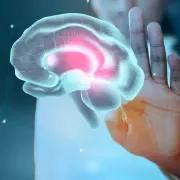Headache 101 : Everything You Need to Know About Managing Headaches
In This Article
Headache 101 : Everything You Need to Know About Managing Headaches
Parvathy
Updated on June 04, 2024
Medically verified by Dr. Arya
Fact checked by Dr. Pournami

Neurology
10 min read
Headaches are a very common issue that is experienced by all, particularly by the youngsters in the postmodern age. It can affect your productivity, mood, and overall well-being.
Are you someone experiencing headaches, and wondering what you should do?
Recognising the various types of headaches and effective coping mechanisms can significantly improve your quality of life.
In this article, Karetrip will explore the different classifications of headaches, their sources, symptoms, and practical methods for managing them.
How Do You Define The Condition Called Headache?
A headache is characterised by a pain or discomfort in the head or facial area. Headaches may occur at once or can occur repeatedly, and can be focused in one or multiple regions of the head and face.
Types of Headaches
Headaches are normally divided into two types-
- Primary Headaches
- Secondary Headaches
Primary Headaches
Primary Headaches stem from the headache condition itself rather than external factors. For instance, they may result from tense muscles, expanded blood vessels, alterations in neural communication, or inflammation of cerebral structures. There exist four classifications of primary headaches.
This includes -
- Migraines
Migraines can start during early childhood, particularly in children with a familial case history to migraines. Males normally experience it starting when they are about 7 years old, while girls tend to begin it when they are around 10 years old.
Certain females may experience migraines that correspond with their menstruation.
Migraines often come with intense pulsating ache, nausea, and increased sensitivity to brightness and sound. Migraines may be triggered by hormonal changes, specific dietary items, tension, and environmental elements.
- Tension Headaches
These are the most prevalent form of headache. Stress and psychological or emotional turmoil frequently contribute to initiating discomfort associated with tension headaches.
Defined by mild to moderate discomfort resembling a band constricting around the head. Stress, improper posture, and muscular tension commonly act as triggers.
- Cluster Headaches
Cluster headaches usually start in children above the age of 10, and are more common among teenage males. These headaches are typically observable as recurring clusters lasting for weeks or months, with the series potentially recurring annually or biennially.
Highly agonizing headaches that occur in cyclic patterns or groups. They frequently impact one side of the head and are accompanied by symptoms such as eye redness or tearing, nasal blockage, and agitation.
- Sinus Headaches
This category of headaches arises from sinus inflammation caused by infections or allergies. Discomfort is usually experienced in the forehead area, cheeks, and nasal area, often worsens with changes in position or leaning forward.
Secondary Headaches
Secondary headaches stem from issues in the brain's structure or other health ailments. They are the least prevalent form of headache and generally escalate in occurrence over time.
They may be linked to additional neurological indications, such as fever, persistent vomiting, double vision, or periods of perplexity lacking explanation.
Headaches - What Causes Them ?
The precise origin of headaches remains partially unclear. It is believed that numerous headaches stem from tense muscles and widened blood vessels in the head.
Other headaches may arise from a disruption in the transmission of pain signals between regions of the nervous system responsible for conveying sensations from the head, face, and neck.
On occasion, there may be an underlying issue within the brain, such as a tumor or structural anomaly, though this occurrence is infrequent.
There are also other factors what causes headaches that include -
-
Tension and nervousness
-
Inadequate stance and muscular strain
-
Fluctuations in hormones (frequent in females)
-
Specific dietary items and food enhancements
-
External elements like variations in weather, intense illumination, or potent scents
-
Insufficient rest or erratic sleep routines
-
Insufficient hydration
-
Withdrawal from caffeine
-
Medications
 10 min read
10 min read10 Neurological Benefits of Exercise - Positive Psychology
 10 min read
10 min readChoosing the Right Neurology Hospital: Factors to Consider for Patients and Families
 10 min read
10 min readTop 10 Neurology Hospitals in India
Get a Callback Now
What are the Methods For Diagnosing One's Headache?
Identifying the real cause of a headache involves a complete examination of one's medical history as well as a physical assessment. Sometimes, the diagnostic methods such as magnetic resonance imaging, also known as MRI or LP or lumbar puncture, as it is commonly known, are conducted to eliminate the secondary factors that are contributing to headaches.
However, it is very uncommon for people who suffer from headaches to have a severe underlying issue, and most individuals experiencing migraine headaches do not require diagnostic testing.
Management Strategies for Headaches
There are different management strategies which are helpful in preventing headaches. They are -
- Identify Triggers
Maintain a headache journal to monitor factors like food, tension, climate changes, and sleep habits. Recognizing triggers can assist in avoiding or lessening their impact.
- Manage Stress
Ensure to utilize the relaxation methods such as deep breathing, mindfulness, yoga, or try gradual muscle relaxation methods to reduce the stress levels and to prevent tension headaches.
- Keep in Mind to Retain a Proper Body Posture
Pay close attention to your posture, especially during long sitting hours. Ensure to take regular breaks to stretch your body and adjust your body posture to prevent muscle strain.
- Ensure You Stay Sufficiently Hydrated
Remember to consume plenty of water throughout the day to remain hydrated so as to prevent dehydration-induced headaches. Limit your alcohol and caffeine intake, as they can severely contribute to the condition called dehydration.
- Ensure Sufficient Sleep
Make sure to have a consistent sleep routine and target for 7-9 hours of restful sleep everyday. Inadequate or lack of proper sleep can induce headaches and worsen the existing ones.
- Strive to Engage Yourself in Regular Physical Exercise
Try to involve yourself in regular exercise to reduce your stress, boost mood, and enhance your overall health. However, avoid vigorous exercise during headache episodes.
- Adjust Dietary Habits
Identify and avoid trigger food items such as processed items, aged cheeses, caffeine, and artificial sweeteners. Follow a balanced diet that is rich in fruits, vegetables, whole grains, and lean proteins.
- Consider Medication
Non-prescription pain relievers such as ibuprofen, acetaminophen, or aspirin may give you temporary relief for mild to moderate headaches. For severe or recurring headaches, make sure to seek guidance from a verified healthcare professional for accurate diagnosis and better treatment options.
- Try Focusing Alternative Therapeutic Options
Explore alternative treatment approaches such as acupuncture, massage therapy, chiropractic care, or natural remedies for effectively managing your headache. These methods may offer great relief for certain individuals.
- Try to Consult a Healthcare Professional
If headaches persist despite the lifestyle alterations and over-the-counter remedies, seek proper advice from a medical professional for a thorough assessment and customized treatment plan.
Headaches are very common to various age groups and they affect the overall well being of individuals.
Effectively managing your headaches involves incorporating lifestyle adjustments, stress removal methods, and occasionally practicing medication or alternative therapy methods.
By understanding the triggers and embracing healthy lifestyle practices, one can diminish the frequency and intensity of their headaches and thereby enhance their general well-being.
It's very important to take professional help if your headaches are intense, recurrent, or disrupting or affecting daily functions.
With appropriate management techniques, headaches can be efficiently regulated, enabling individuals to lead more comfortable and fulfilling lives.
Source Links
Children's National Hospital
Medical News Today

